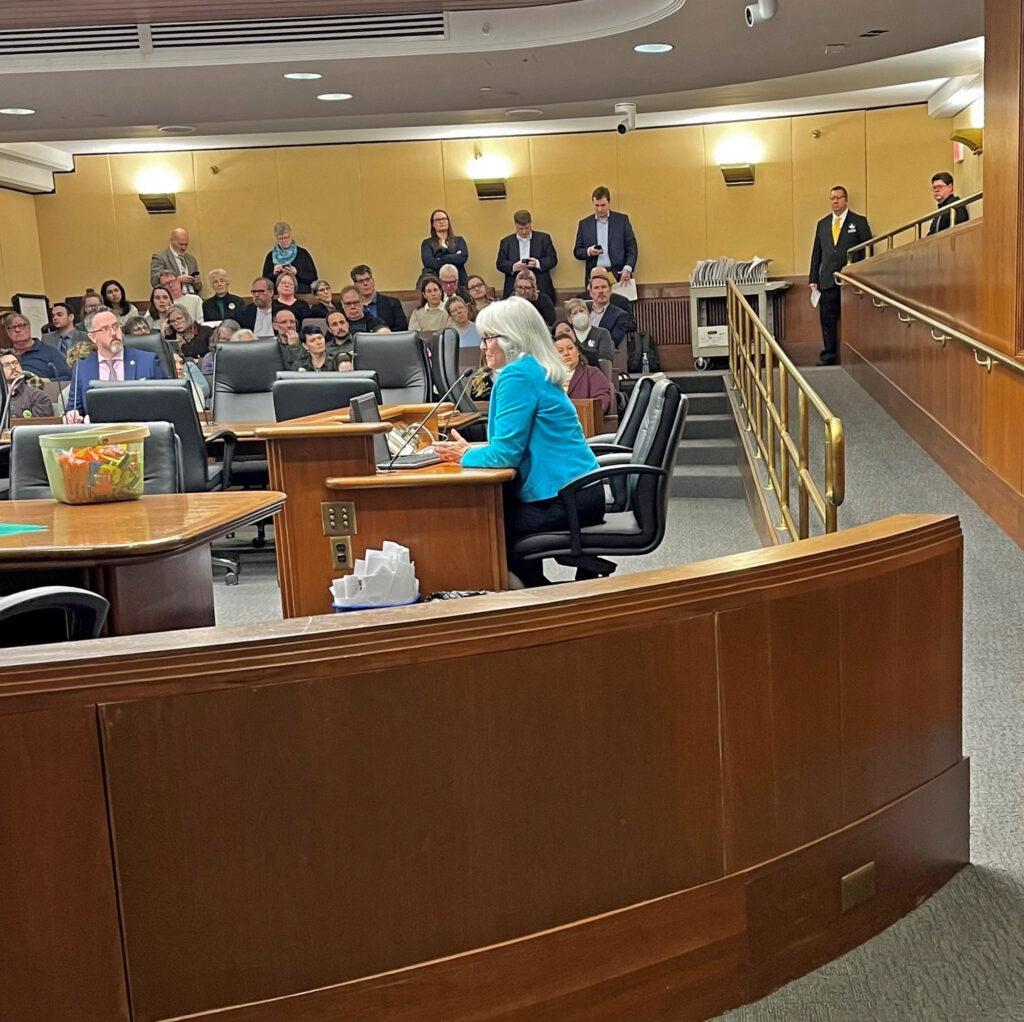Freshwater priorities around nitrate response and Legacy funding prevail, while bonding for water infrastructure is left unfinished
Despite limited available funding and a chaotic finish to this year’s session, the Minnesota Legislature made progress on several important water issues, including response to nitrate contamination of private drinking water wells.
Freshwater continued to build constructive working relationships with several bipartisan legislators – including members of the House and Senate agriculture committees. Throughout the session, we provided written and in-person testimony in support of clean drinking water, healthy soils and public water infrastructure.
Below is a recap of several issues that Freshwater has been following over the past several months. You can find our legislative agenda, along with each letter we submitted to various committees, on the Freshwater policy page.

Nitrate in drinking water
Nitrate pollution from agriculture was a major focus for the Legislature, following a 2023 petition to the Environmental Protection Agency by conservation groups asking for emergency federal intervention in southeastern Minnesota. While this is a statewide issue, the karst geology in southeastern Minnesota makes the region especially vulnerable to groundwater contamination.
Freshwater focused on preventing nitrate contamination, increasing soil health, and providing safe drinking water. A uniting outcome from discussions around nitrate in agricultural areas was that all parties agreed Minnesota residents should have access to clean drinking water, no matter where they live.
State agencies have developed a work plan for nitrate response, and several steps were taken during the session to address this persistent issue:
- The House Agriculture Committee conducted an informational hearing on nitrate with testimony from soil health and groundwater experts including Freshwater Research and Policy Director Carrie Jennings.
- The Clean Water Council recommended a significant share of the $25 million surplus in the Clean Water Fund to be spent on nitrate testing and prevention. Freshwater submitted several letters and coordinated with partner organizations to support the Council recommendations, most of which were ultimately passed by the Legislature. This funding includes:
- $1 million to the Department of Agriculture to address nitrate in groundwater.
- $3.4 million to the Agriculture Best Management Practices (BMP) Loan Program, which helps farmers purchase equipment needed to reduce pollution.
- $2.79 million to the Minnesota Department of Health for private well testing and outreach in southeastern Minnesota.
- The Legislature also directed $2.8 million from the General Fund to provide home water treatment for those with contaminated private drinking water wells in southeastern Minnesota.
- The Minnesota Department of Agriculture received $495,000 for the Soil Health Financial Assistance Program to improve farming practices in southeastern Minnesota.
Public water infrastructure
Freshwater Executive Director Michelle Stockness testified to the Minnesota House in support of creating a new Council on Infrastructure to better identify infrastructure needs and coordinate across sectors. The passage of this provision was a bright spot in the session, which ended without passage of a bonding bill.
Freshwater supported significant investments in water infrastructure as outlined in HF4111, which would have provided $299 million to the Public Facilities Authority to match federal grants and provide money to municipalities for needed water system improvements. We are hopeful that the Legislature will act in future sessions to invest in Minnesota’s aging water infrastructure.
Soil and Water Conservation District (SWCD) funding
Initiatives to increase funding for Soil and Water Conservation Districts (SWCDs) did not advance this session. This will continue to be a priority for Freshwater because SWCDs are key partners in providing frontline technical assistance to farmers, helping them implement clean water practices on their land.
Future issues to watch
Freshwater supported a clean water, climate-smart, and soil-healthy farming bill (HF4989) that would incentivize use of multiple practices like cover crops and no-till farming to build soil health, protect water quality and sequester carbon. While the bill in its entirety did not move forward this session, we were encouraged to see a provision from the bill pass, which directs the Minnesota Department of Agriculture to explore a potential state carbon market.
Also related to carbon and farming, Minnesota has been considering a Clean Transportation Fuel Standard. Freshwater is concerned that such a policy could further incentivize corn ethanol production, which has a negative impact on water quality.
The Legislature considered a proposal to redirect revenue from a 40 cents per ton fee on fertilizer to a drinking water mitigation account. This was not adopted, and the fee will continue to fund the Agricultural Fertilizer Research and Education Council (AFREC). However, the council overseeing this fund will now include four new members with expertise in sustainable agriculture, soil health, public health and water quality – and projects related to clean water and regenerative agriculture will now be eligible for funding through AFREC.
Chloride pollution from deicing salt continues to be a growing problem for Minnesota waters. Freshwater supported the latest attempt this session to provide limited liability protection for salt applicators who complete smart salt training (HF820), but the bill did not move forward. We remain committed to working with partner groups, agencies, policy makers and our Minnesota Water Stewards community on solutions to reduce salt use.